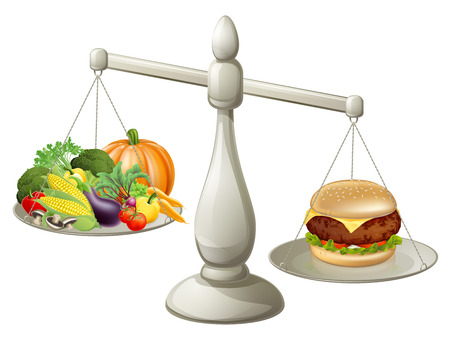Feeling invigorated due to exercise and controlling your weight is all a matter of energy balance. Ask yourself this question: “Does your weight go up and down like a yo-yo?” In the likeness of Dr. Phil, Dr. Tindall says that, “if the weight scale keeps you emotionally off balance, consider a different scale – one called energy balance.”
Energy Balance
This balance is dependent upon energy input and energy output. Both influence energy stores in the body and whether or not we build adipose tissues, i.e., become fat, uh, anorexically challenged!
Think of energy balance this way:
Food Intake – Energy Output = Weight Change.
It’s a very simple concept. If you eat 3000 kcal (common term is calories) per day and only expend about 2000 calories per day because you’re overeating the energy requirements your body needs, e.g. your intake is more than your output, you will gain weight. Someone eating this way would gain about 100 pounds over 12 months. Impossible? No! People have actually done this.
If you eat 100 calories per day more than you need, you will gain 10 pounds during 12 months, on average.
Eating more than you expend, will lead you to a positive energy balance and a weight gain.
If you eat less than you expend, you will be in a negative energy balance and will lose weight.
To maintain your weight, you must expend the same amount of energy that you eat, which will result in no change in weight.
Energy Intake
Energy demands by the body are met by food intake, represented by the numbers of kcal that we eat each day. Determining the appropriate amount of calories and the type of food we should eat to match our energy requirements is a big challenge for a great many of us.
The problem we have currently is that, given ever present supplies of foods, many of us seem to be too successful in attaining the food energy we need. Today, instead of hunting food in the wild, our hunt leads us to the nearest vending machine, drive-up windows, parties, and even office desks where someone always seems to be celebrating something. This really helps us in our quest to overeat and have a fit, trim figure. Also, many of us become junk-food junkies.
How Much is Too Much?
You must match exercise activity to caloric needs. Scientists do this with what we term the resting energy expenditure (REE). Without getting too difficult, let’s use this formula:
Body Weight x 10 + 200 = REE.
It’s an approximation, but works well and will assist you in your initial quest. For example, if you weigh 150 pounds, you would need 1700 kcal daily to maintain your current body weight. This is without exercise.
If you exercise, you will need to determine how many calories you expended during exercise and add that to the above. As an example, suppose you rode a stationary bike for one hour and burned 450 kcal as indicated on the monitor on this device in your gym. You then must add 450 + 1700 = 2150 kcal for this day’s caloric intake. Ah, but this means you’ll have to know how many calories you burned during a given exercise.






